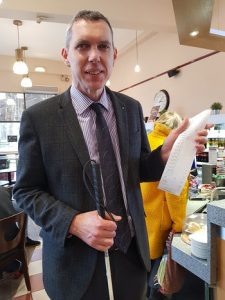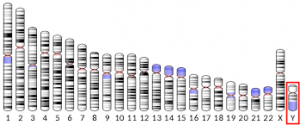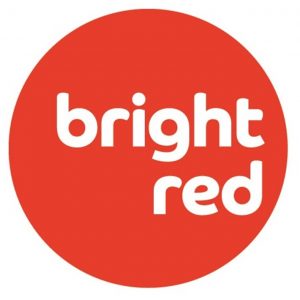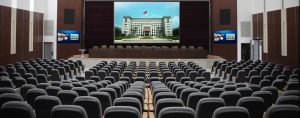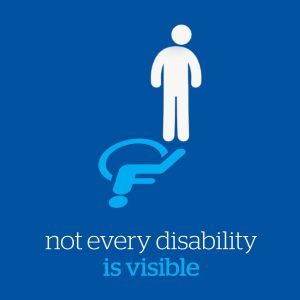 This month, as part of UK Disability History Month (22nd November – 22nd December) and International Day of Persons with Disabilities (3rd December), we’re focusing on disability.
This month, as part of UK Disability History Month (22nd November – 22nd December) and International Day of Persons with Disabilities (3rd December), we’re focusing on disability.
In the UK today, there are 13.3 million people living with disabilities. For many of these people, you wouldn’t know they have a disability just by looking at them. They don’t use a wheelchair, or crutches, or hearing aids. Yet their condition continues to affect their quality of life just as significantly, leaving them in constant pain or making simple day-to-day tasks very difficult. These disabilities are known as ‘hidden’, ‘invisible’, or ‘unseen disabilities’.
For many effected by a hidden disability, they are often ignorantly and unfairly labelled as “attention-seeking” or “imagining it” by those who do not understand the impact of these conditions on a person’s daily life.
To help you understand what it’s like to live with a hidden disability, a member of staff has written a personal account about their experiences:
“You’re not old enough to have arthritis?”
“You wouldn’t know you have arthritis – you look fine!”
If I had a pound for every time these things have been said to me, I would be very wealthy.
I was diagnosed with Rheumatoid Arthritis (RA) when I was 25, in 1996. Just to get to a point of diagnosis was a struggle. It took 18 months of recurrent visits to my GP with pains and stiffness in different parts of my body, being told there was nothing wrong with me, to the point that I believed I was imagining the symptoms before the Rheumatoid Factor decided to show itself in my blood results.
A diagnosis was a massive mental milestone, as I could finally put a label on what was wrong with me. Following diagnosis, it was a further six months before I crept to the top of the waiting list and was able to see a consultant, by which time my weight had dropped dramatically, several of my joints were painfully swollen, and I struggled to complete mundane tasks such as making a cup of tea or doing up some buttons. Finally getting a treatment plan was another milestone and then the realisation of a lifetime of hidden, chronic pain slowly began to dawn.
RA is like being on a never-ending rollercoaster – I do not have pain free days, but some days are better than others. Also, I constantly feel tired. Chronic fatigue (a little-known symptom of RA) is a most unwelcome guest when looking after a young family and elderly parents.
I take a whole host of medication, both daily and weekly. The weekly medication is not pleasant and is not something I relish taking every Sunday evening. Yet, like many people with hidden conditions, I carry on, as I’m determined that this condition, although limiting how I live some aspects of my life, will never defeat me.
I do not say all this to garner sympathy. I do not, and never want to be, defined by my RA, and the last thing I want is to be pitied. Having lived with chronic pain for over 20 years, I have found workarounds for everyday activities, so that only those closest to me know when I’m having a bad day.
Around 1% of the population in the UK has RA, and this is only one of a number of conditions where a person’s illness, limitations and pain remain hidden. Being diagnosed with RA turned my life upside down, but despite this I have learned some very valuable lessons and now, more than ever, realise the importance of being kind, patient and understanding, as we can never automatically know the challenges family, friends and colleagues face in their everyday life.
So please do not judge. Instead:
- Be kind to the person who is walking too slowly for your liking.
- Be kind to the person in the supermarket who asks for help to reach something on the shelf.
- Be kind to the person who appears able-bodied who has sat in an accessible seat on the train.
- Be kind to your colleague who is too tired to interact.
- Be kind to your friend who cancels a night out at the last minute.
Be kind, as you can never know the journey people are on and the barriers they have overcome (whether RA or another hidden condition) to get where they are today.
To find out more about hidden disabilities, please visit the Invisible Disabilities Association’s webpage. Or, email us at FMS.Diversity@nc.ac.uk to find out how you can get support, or help support others.

